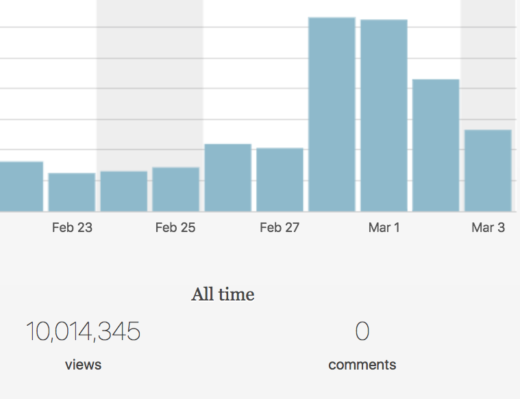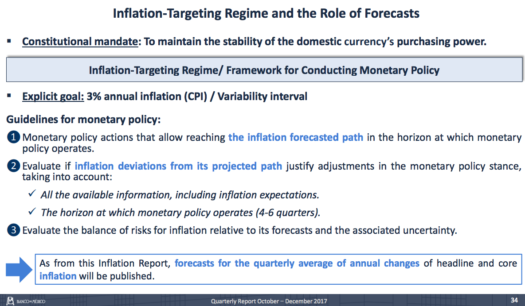Donald Trump and other members of the alt-right tend to have a very favorable view of Vladimir Putin. After all, he shares many of their nationalistic political instincts. But nationalists face a dilemma, as their ideology is fundamentally selfish. Nationalists favor the home country and demonize foreigners. So are nationalists to be pro-America or pro-nationalism? You can’t have it both ways.
In recent years, Putin has brought back the Cold War, by invading neighboring countries, tearing up arms control agreements and gloating about the fact that the US will not be able to stop a new type of nuclear missile from reaching Florida. Trump doesn’t seem to know how to respond to this new reality:
Former CIA Director John Brennan expressed “deep worry and concern” Friday about leadership and the nation’s safety in the wake of Donald Trump’s ugly Twitter attack against Alec Baldwin over the actor’s portrayal of the president on “Saturday Night Live.”
Brennan was asked by Nicolle Wallace on MSNBC if he thought Trump was “too unstable” to possess the nuclear codes that would allow him to launch an attack. Brennan responded that he was rattled by the president’s strange focus on Baldwin the morning after Russian President Vladimir Putin boasted of his nation’s nuclear capabilities to strike anywhere in the world, including the U.S. A simulated video presented by Putin appeared to depict next-generation nuclear missiles striking Florida.
Trump has yet to respond to Putin. Instead, he ranted against the actor in an error-riddled tweet early Friday morning (the tweet was later reposted with corrections).
“When I hear what Vladimir Putin was saying about the nuclear capabilities he has [and] then the president of the United States is tweeting about Alec Baldwin this morning, I mean, where is your sense of priorities?” Brennan asked. “I think a lot of Americans are looking at what’s happening with a sense of: This is surreal.”
There’s “deep, deep worry and concern for this country’s national security,” he added.
A couple days ago I visited the Nixon Library in Yorba Linda. The Nixon administration is the first one that I remember well, and seeing the exhibits brought back a lot of memories. I view Nixon as one of America’s worst presidents. He was very corrupt and dishonest. And yet, he was so far superior to Trump that it’s like they are not even members of the same species. Even in Nixon’s worst qualities, he was nowhere near as bad as Trump; not nearly as corrupt or dishonest, for instance. (John Dean recently made the same point.) And in his best qualities he was dramatically superior to Trump. He worked hard, gave a lot of thought to foreign affairs, and did seriously try to improve our relations with countries such as China and the Soviet Union. Watching news clips from that era you had the sense that America was actually a serious country, like Canada or Germany or the Netherlands. Now this country seems like just another banana republic, with a president who has the mentality of a Duterte, a Chavez, a Berlusconi. It is a surreal experience viewing the Nixon Library with the thought of Trump in the back of one’s mind.
Update: And isn’t this reassuring?



